
THE SCHOOL OF UNDERSTANDING
ECM 1648/49 (2-CD SET)
Sort-of-an-Opera
Words by Michael Mantler
Voices
Jack Bruce (Observer)
Per Jørgensen (Teacher)
Mona Larsen (Refugee)
Susi Hyldgaard (Journalist)
Karen Mantler (Student)
John Greaves (Businessman)
Don Preston (Doctor)
Robert Wyatt (Guest Observer)
Musicians
Michael Mantler (trumpet, conductor)
Roger Jannotta (clarinet, bass clarinet, flute, oboe)
Bjarne Roupé (guitar)
Marianne Sørensen (violin)
Mette Brandt (violin)
Mette Winther (viola)
Helle Sørensen (cello)
Tineke Noordhoek (vibraphone, marimba)
Kim Kristensen (piano, synthesizers)
Don Preston (synth drums)
The Danish Radio Concert Orchestra
Strings
conducted by Giordano Bellincampi
recorded
August 1996, Copenhagen
Prelude / Introductions / First Lesson / News / Love Begins / War / Pause / Understanding
CD 2
Health and Poverty / Love Continues / Platitudes / Intolerance / Love Ends / What's Left To Say / What Is The Word (words by Samuel Beckett)
listen to selected excerpts
additional information about stage productions in Copenhagen and Berlin
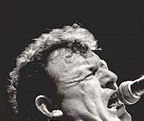
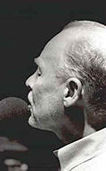
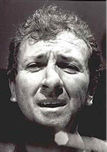
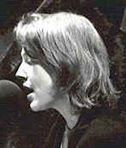
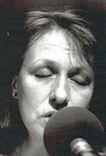
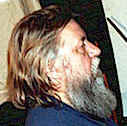
Don Preston, John Greaves, Karen Mantler, Mona Larsen
and Robert Wyatt have all worked with Mantler on various occasions before.
But in addition, two equally interesting new voices were found for this project, namely Per Jørgensen and Susi Hyldgaard.
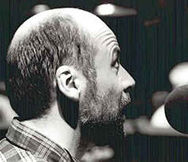
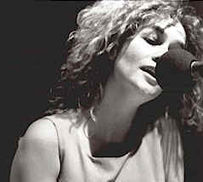
I never intended to write an opera within the generally accepted definition of that term. To me, and probably to most of the world, the word "opera" means something very specific, something "The School of Understanding" is definitely not. Therefore, in order not to confuse anybody and to make that immediately clear, I decided to give it the "sort-of" sub-title. That may not exactly clarify what it really is, but at least it excludes a large conventional musical category. Yet it does make some sense, it is "sort-of-an-opera", since it was originally conceived to be performed as a multi-media "theatrical concert" with a certain amount of visual elements. It was, however, always intended that the music could nevertheless also stand on its own on purely musical terms in a recorded version.
What is it
about?
Its fundamental
theme is "understanding", communicating, recognizing and considering
certain universal problems in today's society. The setting for this was
a conversation class in a language school. The original stage production
was called "The School of Languages" and included material in
several different languages. However, that aspect was eventually eliminated,
and it became simply an abstracted school of "understanding".
Does
it have a "story"?
Not really,
but there is a simple dramatic framework: after the teacher and the students
have introduced themselves, a newscaster, appearing on pre-recorded videos
in the stage production, presents news reports of various fictitious events
as conversation topics. These themes are then discussed, commented on,
some personal stories are being related by students, questions are raised,
observations are made, but generally no answers are given. In addition,
a developing romantic relationship between two of the students threads
through the various episodes as a sort of mini-serial.
Another consistently recurring and connecting element is that of Jack Bruce as the "Observer". He serves as a somewhat illusory presence, overlooking the proceedings from an outside point of view, injecting reflections, questions and comments on the various events and topics. Robert Wyatt as "Guest Observer" adds additional observations in one central song, which was also achieved through a pre-recorded music video in the stage version.
You have written
the words yourself, although in the past you have said not to feel qualified
to write words. Why now?
I never intended
to write "poetry", the language is deliberately unpretentious
everyday speech, almost like lyrics in popular music. In the end I do
of course revert to a concluding poetic statement as resolution of the
whole work in the form of "What
Is The Word", a text by Samuel Beckett, which I have used before,
and which to me seems to sum it all up perfectly.
(excerpts from themes introduced by the NEWSCASTER - News texts created by Margery Mandell)
in today's
news, as always...
advertising,
aggression, Aids, alcoholism, atom bombs, bad taste, big business, bigotry,
bloodshed, chauvinism, chemical warfare, civil wars, corruption, crime,
defense budgets, deforestation, dictatorships, discrimination, distribution
of wealth, drug addiction, dying cities, ecological disasters, elections,
environmental destruction, epidemics, equal rights, the european community,
famines, genocide, ghettos, greed, hate, health care, homeless people,
human rights infringements, hunger, ignorance, illiteracy, inhumanity,
injustice, intolerance, malnutrition, the narcotics trade, nationalism,
nuclear accidents, organized crime, overpopulation, ozone depletion, police
brutality, politicians, pollution, poverty, prejudice, racism, rain forests,
religious fanatics, riots, sexual harassment, slums, social welfare, starvation,
taxes, terrorism, torture, unemployment, the United Nations, urban decay,
violence, Wall Street, wars, the weapons trade, wildlife, xenophobia....
.....the
intelligence of the casting, the coherence of the music and the deft sensitivity
of its performance by Mantler's Chamber Music and Songs ensemble render
the whole project a triumph for all concerned.
- JAZZWISE